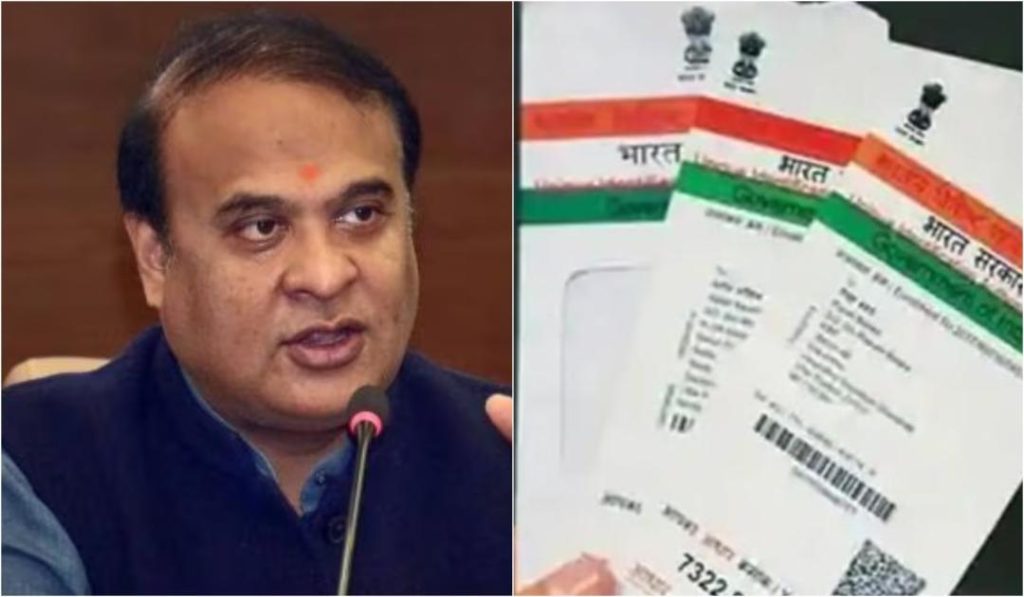
People above 18 yrs will not get Aadhaar card in Assam: CM Himanta
In a recent announcement, Assam Chief Minister Himanta Biswa Sarma has stated that the state will no longer issue Aadhaar cards to individuals above the age of 18, except for specific communities. This decision aims to prevent illegal immigration and ensure that only genuine citizens of India receive the unique identification cards.
According to a report by The Indian Express, the Chief Minister made this announcement while addressing a press conference. He emphasized that the new policy will be effective immediately, and adults above 18 years of age will not be eligible to apply for an Aadhaar card. However, members of Scheduled Castes (SC), Scheduled Tribes (ST), and tea garden communities will be given an additional year to apply for the card.
Sarma expressed his concerns about the potential misuse of Aadhaar cards by individuals who may have entered the country illegally. He stated, “We want to create a protection so that no one can enter Assam illegally and take an Aadhaar and live as Indian citizens.” The Chief Minister’s remarks suggest that the state is taking a firm stance against illegal immigration and is determined to ensure that only genuine citizens of India are granted the benefits of Aadhaar.
The Assam government’s decision to restrict Aadhaar card issuance to specific communities is likely to have far-reaching implications. For instance, it may affect the livelihoods of individuals who depend on Aadhaar cards for various benefits, such as government subsidies and social welfare schemes. Furthermore, the move may also lead to unrest among certain sections of society who may feel that their rights are being curtailed.
However, proponents of the decision argue that it is necessary to prevent illegal immigration and maintain the integrity of the country’s demographic profile. They point out that Aadhaar cards can be easily obtained by individuals who are not genuine citizens of India, which can have serious consequences for the country’s security and economic stability.
The Assam government’s stance on Aadhaar card issuance is not an isolated incident. In recent years, there have been several instances of states and central governments taking measures to curb illegal immigration. For instance, the Assam government has recently implemented a National Register of Citizens (NRC) to identify and verify the citizenship status of individuals residing in the state.
The NRC is a comprehensive exercise that aims to identify genuine Indian citizens and weed out individuals who are not eligible for citizenship. The exercise has been controversial, with many individuals and organizations questioning its legality and feasibility. However, the Assam government has maintained that the NRC is necessary to ensure the integrity of the country’s demographic profile and prevent illegal immigration.
In conclusion, the Assam government’s decision to restrict Aadhaar card issuance to specific communities is a significant development that has far-reaching implications for the country’s immigration policy and security. While the move may be controversial, it is likely to be seen as a necessary step by many who are concerned about the potential misuse of Aadhaar cards by individuals who are not genuine citizens of India.






